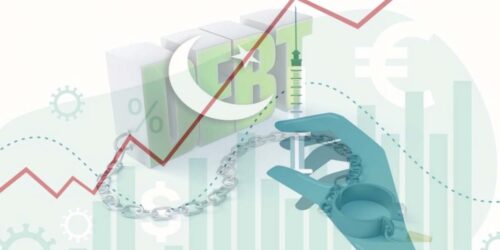The year 2021 was a year of misery and disappointment for the people of Pakistan, and would haunt them for years with little hope that the year 2022 would be any better.
The excellent handling of Covid-19 by the present regime was nullified by its subsequent loss of writ. There was an increase in economic activities, but that was accompanied with difficulties for the common man.
Increase in productivity was not accompanied with new jobs. The increase in taxes
was mainly due to massive decline in rupee value and equally enormous increase in imports.
A decent increase in exports dwarfed when compared with double increase in imports. The low interest regime was short-lived and currently the policy rate is just 250 basis points shy of double digit.
The hopes of containing inflation were dashed and we would be lucky if we ended the year at 10 percent inflation. Rate of unemployment increased, and the remittances for the first time in three years showed signs of decline last month.
Price hikes continued unabated. Some increases were due to high cost of production as devalued rupee increased the imported raw materials and finished products’ costs. Increase in minimum wage was not truly implemented, but it did increase the cost as productivity remained low.
Food inflation remained much higher than general inflation. The rates of both imported and locally produced edibles increased with almost the same percentage. In fact, the increase in locally produced products like milk, sugar and wheat was inline or higher compared with increase in imported edibles like edible oil or some pulses. Mutton, beef, and chicken meat touched their historic highs.
On the non-food side, the power tariff has been increased as never before. Gas prices were also increased, LPG has gone out of reach of the poor. Most of them have resorted to burning wood by collecting bushes or even cutting trees.
That goes against the spirit of green Pakistan so dear to the PM’s heart. Petrol rates are on constant rise. If the rupee continued to decline, the increase in rates would be higher than the Rs4 litre per month increase promised with the International Monetary Fund (IMF). The share of the industry in our GDP has declined this year, which negates the claims of industrialisation revival in the country.
Textile sector was the shining star in 2021, but its progress has been checked due to gas shortages and due to the government’s failure to provide sustained and stable power supply to the exporters.
Traders have warned that the exports will taper off after December, as foreign buyers have stopped placing fresh orders because of the power and energy crisis in the country.
Similarly, domestic industries catering to the needs of local consumers are in tatters. The increase in costs due devalued rupee, high inflation, high bank markup and institutional corruption has eroded the competitiveness of local products.
An extraordinary increase in imports is not limited to machinery or petroleum, but is also due to import of many finished products that compete with locally produced goods, as their cost of doing business is low.
The decline in industrial employment is because of the influx of imported items in the country. One sector that flourished without state help was e-commerce. All leading textile outlets sell most of their garments and fabric online.
They have developed a reliable and quick delivery system. Suppliers outside textiles have also started taking and disposing orders online.
Many grocery suppliers have also stepped in. Small retailers have started feeling the pinch of online sales of almost every item.
And this is not restricted to big cities. Suppliers of textile products are operating even from the remote areas and have gained the confidence of e-consumers. E-commerce has created more jobs in one year than the industry. The web of delivery boys and couriers is spread all over the country.
On the other hand, the agriculture sector has seen too many troubles. Pakistani farmers are ending the year on a sour note. There is an acute shortage of urea in the country as fertiliser plants were denied gas, which is the basic raw material for making urea.
Farmers need urea at the time of sowing wheat. A shortage in urea supplies means wheat sowing has been inordinately delayed. The best time for sowing wheat is up to 15th November. After that the wheat output declines every day and its sowing is delayed.
Government performed better in handling Covid-19, but otherwise the health services deteriorated. The prices of drugs have increased because of the devalued rupee as well as supply chain constraints.
The budget for purchasing medicines in government hospitals and clinics was not enhanced. Poor patients must now buy medicines even when they are treated in emergency wards. The prices of many life saving drugs have doubled or tripled.
Education suffered badly this year. Private schools managed imparting education through the internet, but the students at government schools lacked this luxury as most of the government schools did not take online classes, and where they did, the poor students lacked computer or internet connection.







